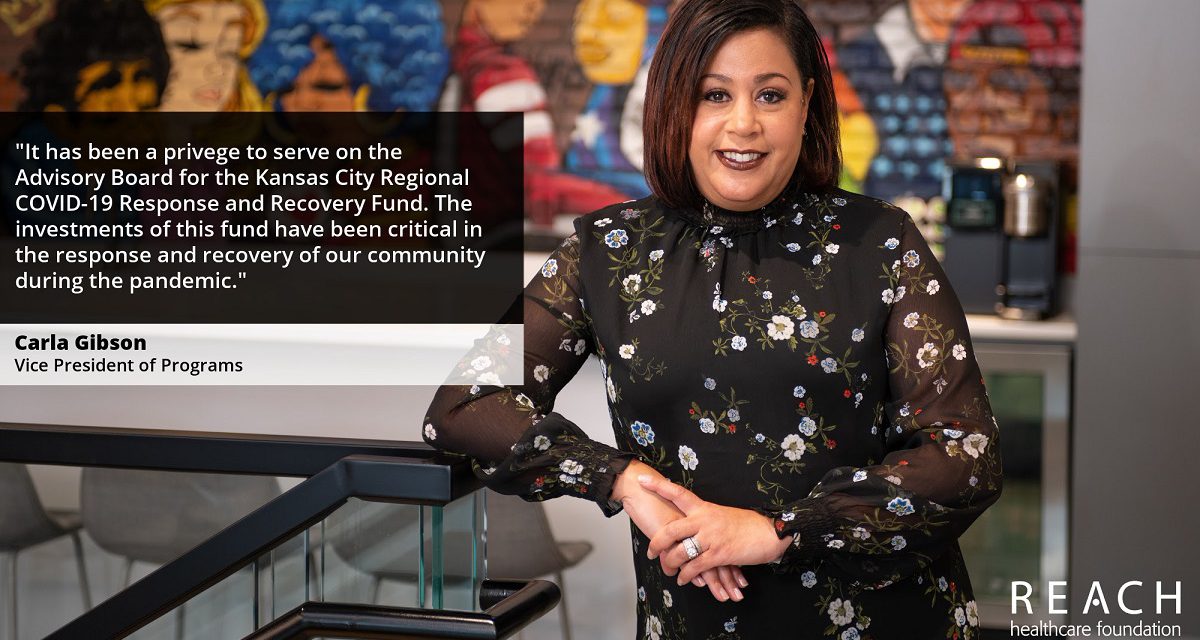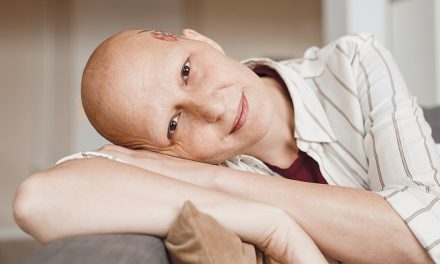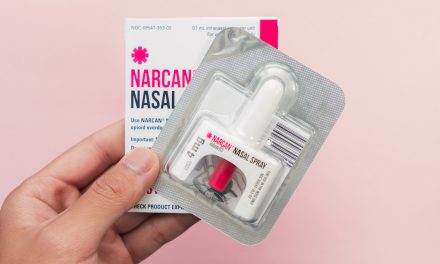Born and raised in North Omaha, Nebraska, Carla Gibson was immersed in a Black community that demonstrated strength and resilience. One of six siblings, her mother worked the night shift full time at a local hospital for 33 years. The working-class neighborhood exuded a fierce work ethic – one that she, too, would assume.
“We lived, worked, worshiped and supported businesses in this community,” said Gibson, Vice President of Program at REACH Healthcare Foundation. “I saw resilience all around me. From my family to my neighbors, it was just about making it.”
Gibson said even with the positive role models that surrounded her, she still witnessed health and economic disparities in her community and wanted to be a part of the solution. The first college graduate in her family, Gibson knew there was no room for failure. She had to get a degree she could use.
Initially, Gibson sought a degree in marketing and realized the for-profit sector was not the path she wanted. After three years in, she segued into sociology – a degree she knew would help her better understand the community she’d one day serve.
Gibson had a full-time job while taking a full course load at the University of Nebraska at Omaha. For three years, she was a bank teller and worked in the bank’s business strategy and mortgage departments. She considered remaining in banking after graduation, a bittersweet time in her life as Gibson’s father passed away due to complications from diabetes.
“I was seeing and living the disparities that existed in the system of health care – particularly in the Black community,” she said.
Gibson, wanting to be a part of the solution, landed a job as a breast and cervical cancer outreach coordinator at a federally qualified health center (FQHC) in her neighborhood. “That was my first job in health care doing community engagement,” she said. “I worked with a lot of Black churches helping to get women screened and into care for breast and cervical cancer.”
She spent five years there progressing to various positions at the FQHC before coming to Kansas City, Missouri, where she worked for the Missouri Department of Health and Senior Services. There, she worked in the Northwest district of Missouri helping both urban and rural communities conduct and understand community needs assessments.
“I did miss the community part,” she said. “I was working at the state level and I really missed being in my community working at the grassroots level.”
Eventually, Gibson landed a position at Swope Health as a Ryan White case manager working with a high acuity caseload of HIV+, homeless and/or mentally ill largely Black caseload. She later moved to what was then called the Kansas City Free Health Clinic (known today as KC Care Health Center), another FQHC.
“I really believed in the free health clinic mission,” Gibson said. “Wow, people can actually get quality health care for free. I was very much a supporter of that and super happy to startup a free youth HIV prevention and substance prevention program from the ground up at KC Care.”
True to form, Gibson also worked her way up at that FQHC and built KC Care’s community prevention department that continues to serve clients to this day. She also oversaw the counseling and testing department – making the facility the first in the area to pilot rapid HIV testing. “We did some great innovative work at KC Care,” Gibson said.
Her work there set the stage for her work at REACH Healthcare, where she started as a program officer. “I think they really liked the fact that I had the experience of being a service provider,” Gibson said. “It translated well to being a program officer on the funding side.”
Gibson was later promoted to senior program officer and is now REACH Healthcare’s vice president of programs, a journey that spans 15 years. Their mission is to increase access to health care and insurance coverage to medically underserved and uninsured individuals – through an equitable lens. “Equity runs throughout all of our work,” Gibson said. “Our mission is to advance health equity through coverage and care for underserved people in our region.”
When asked, Gibson said equity – racial and health – are not confined to urban areas. Gibson said rural white leaders also need to take a seat at the table adding that unlike their urban counterparts, they’ve been absent. “What’s missing are rural white leaders,” she said. “I’d really like to see them standing shoulder to shoulder with us trying to address racial equity as well. While the rural community might not have as much diversity in their populations, they are often right next door to an urban community… There is this bigger picture that needs to have all, not just urban white people, not just young urban white people – all white people as a part of the solution addressing our racial issues. I do not see a lot of rural leaders as partners in this right now, and I would really like to see that happen a lot more.”
REACH has supported the Health Care Collaborative (HCC) of Rural Missouri for more than a decade through grant funds and other initiatives aimed at addressing access to care barriers and insurance coverage. This partnership has reached other nonprofits in Lafayette County and provided the framework for HCC’s Live Well Community Health Centers.
“I have been so well received and accepted in Lafayette County that I feel like an unofficial resident,” Gibson said. “Lafayette County has been one of our standout rural counties in terms of innovation, growth, and partnership. I have been so fortunate to be the one to help grow that relationship during my time at REACH.”
It’s safe to say the turning point for the REACH-HCC partnership started in 2012 with a rather large investment in a program called the Rural Health Initiative. REACH took a different approach to building this partnership and literally offered the leadership in Lafayette County (and in rural Cass and Allen Counties) funds to think big and create a program that would address some of the most pronounced needs in the community.
“The Rural Health Initiative (RHI) is what catalyzed our Live Well Community Health Centers,” said HCC CEO Toniann Richard. HCC runs four community health centers in Buckner, Concordia, Lexington, and Waverly, and two school-based centers in Carrollton and Orrick. “We were given funds to think and dream big – and we did. Fast forward nearly a decade later and this boost from REACH helped to propel HCC as the only rural health network that owns and operates six FQHCs. We are tremendously grateful to REACH for their bold vision and certitude in our ability to shape how we’d respond to the most pressing need in our community, which was access to health care and not just access for the sake of access, but access to quality providers who understood the intricacies of providing health care services in a rural setting.”
REACH Healthcare, a 501 (c) (3) charitable Foundation since 2003, and based in Johnson County, Kansas, serves a six-county region that also includes: Jackson County in Missouri, and Wyandotte and Johnson Counties in Kansas. Listen to the HCC/Live Well podcast for the complete interview, https://soundcloud.com/hccofruralmissouri/carla-gibson-podcast/s-meQBOToWEj7.








